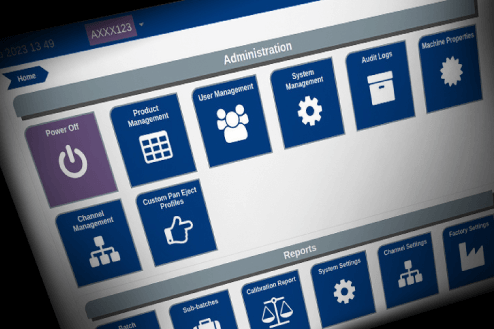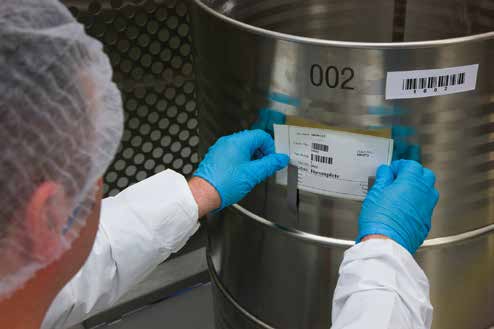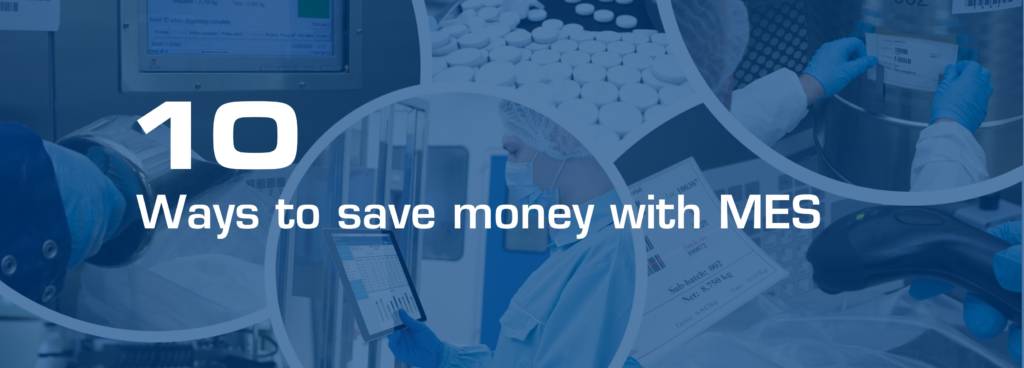 Back to news
Back to news
10 Ways an MES Implementation Project Can Save You Money
Against a backdrop of rising costs, global competition and increased outsourcing, you cannot afford to let productivity slip. From low-cost generics to high-margin, specialised drugs, everyone is working to make manufacturing more efficient, less costly and reliably consistent. A successful MES implementation project can help with this — find out more in our article below.
1. Save by Cutting Waste Costs

An MES can help manufacturers achieve substantial savings in waste ingredients. If the use of incorrect materials or expired inventory can be avoided, companies will minimise the risk of scrapped production, disposal costs, or even recalled batches, which can translate into a large financial benefit.
2. Save by Reducing Staff Costs

Typically, some of the largest cost savings can be made by focusing on streamlining manual processes and eliminating paperwork. With MES implementation, time-consuming and error-prone manual work is replaced with automated processes, including all pre-checks, manufacturing activity and post-checks for each batch stage. By cutting the time that operators spend checking details, writing labels and completing paperwork, you need fewer people and/or fewer shifts.
3. Save Through Inventory Reductions

Companies with little visibility into the manufacturing floor maintain a high level of inventory. MES solutions create near real-time reports using quality-approved data therefore allowing companies significant scope to reduce inventory levels.
4. Save by Reducing Batch Failures
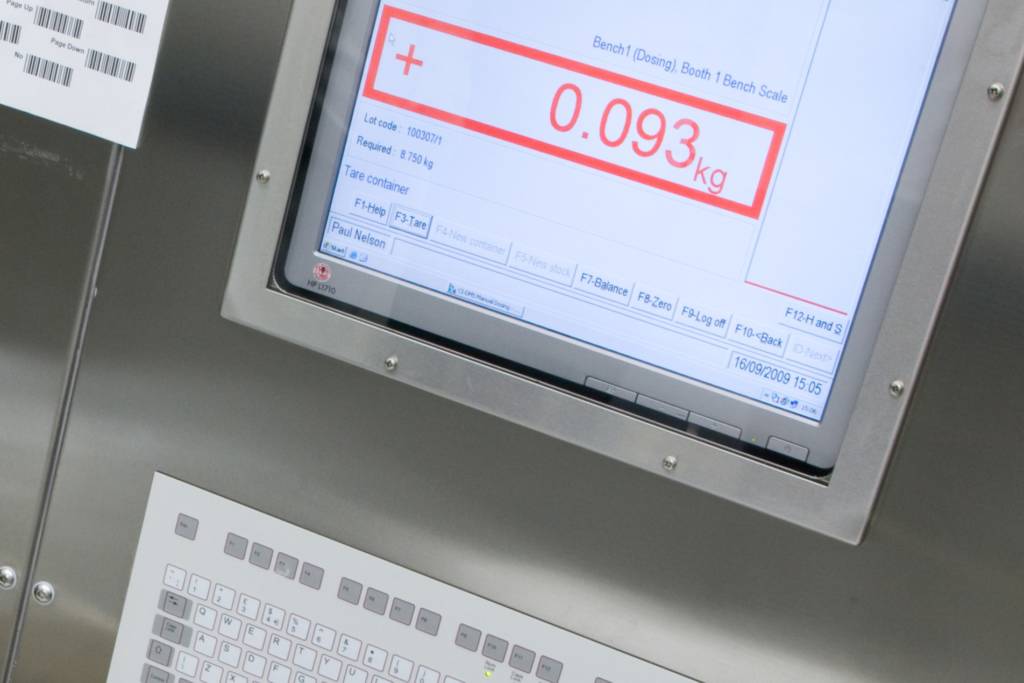
Failsafe controls can be integrated into the system, significantly reducing the propensity for errors and miscommunications. This can help safeguard against batch failure and associated disposal costs.
5. Save by Improving Batch Release Time

Review of paper-based batch records or changes to either a master document or an executed copy can be frustratingly slow, as the single copy must travel from one desk to the next. With an electronic batch record, every step of the production process is verified automatically, reducing cycle times and enabling review-by-exception.
6. Save by Eliminating Operator Error
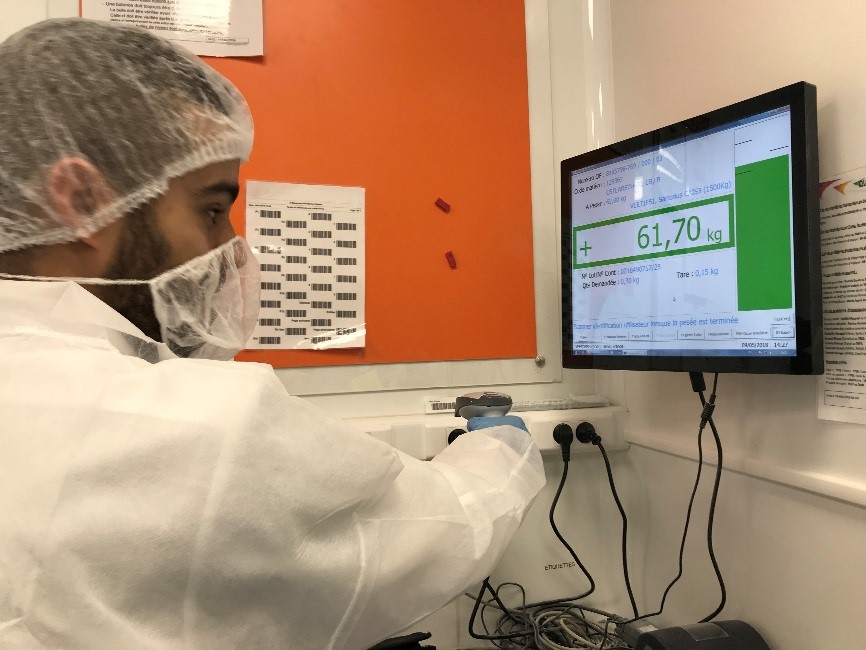
Reducing human error can deliver dramatic cost reductions. Savings come in part from reducing errors, but also from identifying them early before the batch is affected and production time is wasted. Many types of operator errors, such as using incorrect lots of materials or ignoring out-of-spec in-process results can be stopped when they occur and before costs start escalating.
7. Save by Minimising Investigation Costs

Every healthcare manufacturer is committed to minimising human errors, but when they do inevitably occur, the associated costs can be very high. When Quality identify an error or deviation, the ensuing investigation is often time-consuming and therefore costly. MES implementation can help to greatly reduce the number of errors, but also have electronic records that quickly identify the causes.
8. Save by Performing Efficiency Analyses

To pinpoint performance bottlenecks and manage people effectively, good management information is essential. MES functionality allows you to identify how long different parts of your processes are taking, how well different operators are performing and where further improvements could be made.
9. Save by Reducing Miscommunication

Many problems can occur because instructions, verbal or written, can be unclear or misunderstood. Paper-based documentation of errors, deviations, and abnormalities can quickly become a tangle of arrows, asterisks and dated initials. Entries in an electronic batch record are clear, concise, legible and traceable as operators’ electronic signatures are attached automatically.
10. Save by Minimising Compliance Costs
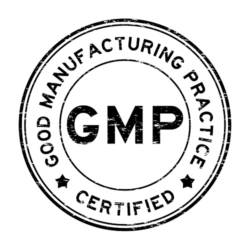
Companies have ongoing costs associated with the storing and retrieval of paper batch records held in accordance with regulations applied by the relevant agency. With the introduction of an MES, major cost reductions can be achieved.
When it is time to prepare for an audit, an MES is more efficient at retrieving information, which means fewer staff resources get involved and audits become shorter and better.
Ways an MES Implementation Project Can Help You Save Money
Especially in today’s economic climate, more and more businesses are looking for ways to improve their bottom line. For pharmaceutical manufacturers, an MES can help control day-to-day production operations as well as introduce visibility, control and transparency to improve efficiencies and maximise savings. For example, the right MES can help you save money by:
- Cut Waste Costs – more products, less waste
- Reducing Staff Costs – automate manual processes
- Reducing Inventory – reduce stock levels
- Reducing Batch Failures – integrate failsafe controls
- Improving Batch Release Time – reduce cycle times
- Eliminating Operator Errors – before costs escalate
- Minimising Investigation Costs – save investigation time
- Carrying out Efficiency Analysis – data to drive improvements
- Reducing Miscommunications – entries are clear and concise
- Minimising Compliance Costs – less staff needed
Implementing the right MES solution can give you the kick-start you need to get the most out of your equipment and processes. Please reach out to our MES implementation specialists to learn more about our MES solution or discuss an MES implementation project.

